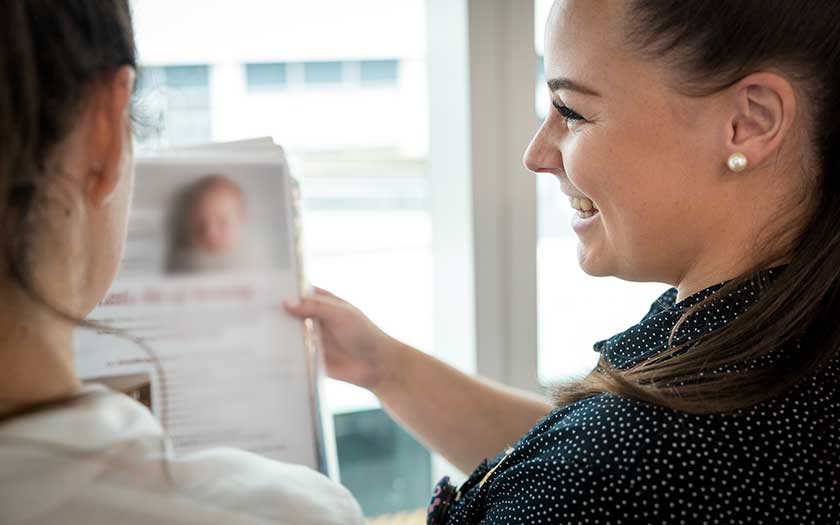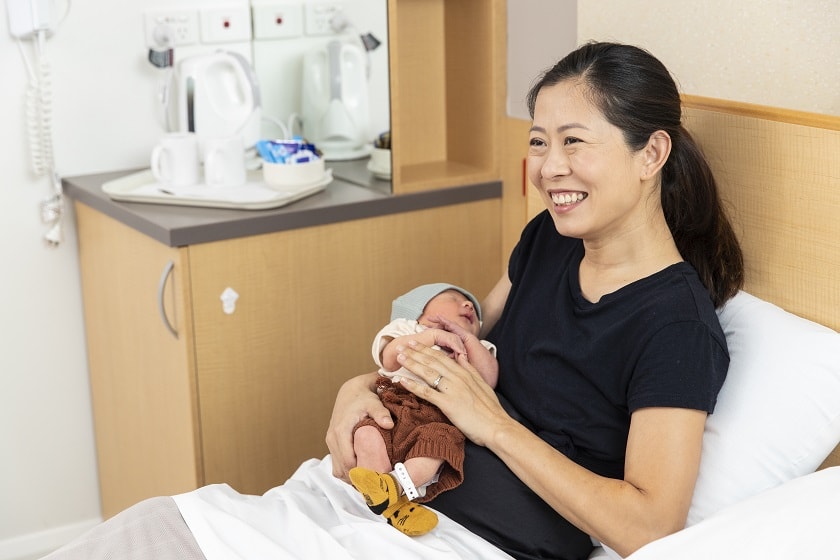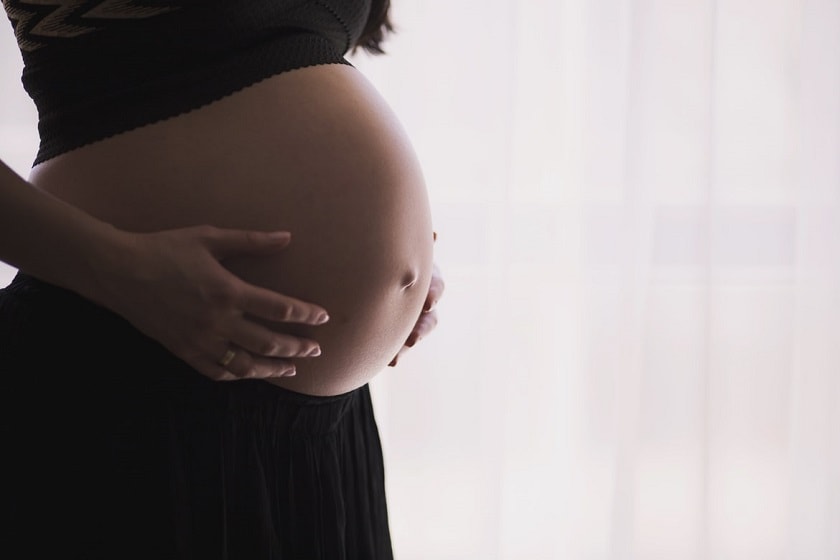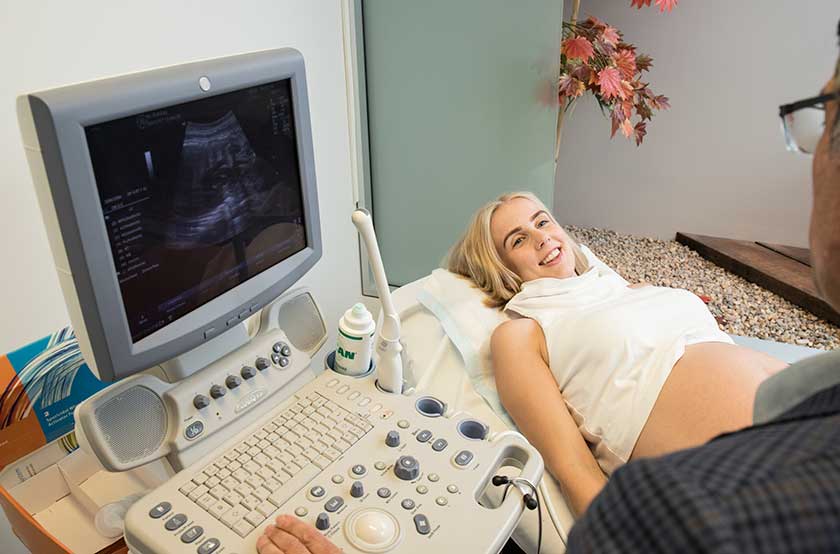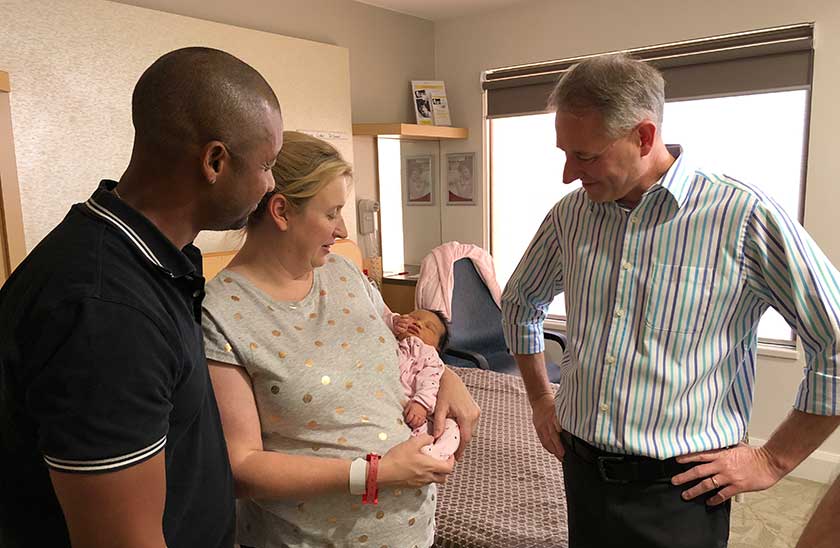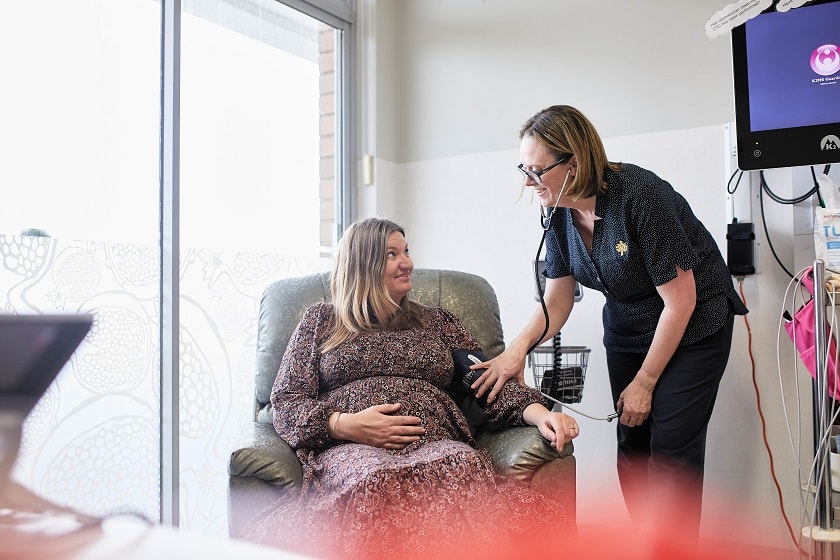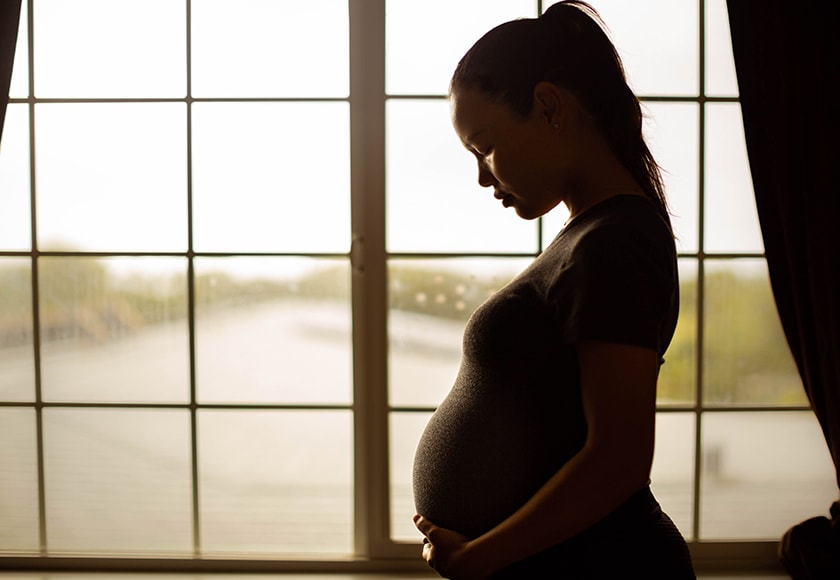What is a caesarean?
A caesarean is a surgery which can be used to deliver a baby if a vaginal birth is not possible or not safe. Some women will choose this as their birthing option.
You normally undergo a caesarean section under a regional anaesthetic (numbing a specific part of the body only) such as a spinal or epidural block. However, under rare circumstances, a general anaesthetic may be necessary.
During the procedure you are awake and alert but should feel no pain. It is common to experience some pushing, pulling or stretching sensations.
Your anaesthetist communicates with you throughout surgery to ensure you are comfortable and to address any of your concerns.
A screen is put up so you will not be watching the procedure. However, you can ask for the screen to be lowered for the moment of birth.
An incision is generally made at your ‘bikini line’. It usually takes only a few minutes for your baby to be born then up to an hour for all the layers to be repaired. All of your internal stitches are dissolvable. Your obstetrician may use either dissolvable stitches or staples for the skin.
A caesarean is considered major surgery and therefore has associated risks. Your obstetrician will discuss these risks with you and your partner.
Why would I need an elective caesarean section?
Your obstetrician may recommend you have an elective caesarean for a variety of reasons. These include:
- if your placenta is low in the uterus and therefore blocking the babies exit (placenta praevia)
- if your baby is in an unusual position such as breech
- if you have had a caesarean before (although another caesarean is not always required)
- if there are any concerns in relation to your baby’s size
- if there are other complications during the pregnancy affecting you or your baby.
Sometimes caesareans need to be done as an emergency procedure once labour has started. The most common reasons for this are that the labour is prolonged, or your baby is distressed.
Can my partner stay with me during the caesarean?
Generally, yes your partner or a support person is welcome in theatre during a caesarean section.
However, if a general anaesthetic is required, your partner may be asked to leave the theatre until your baby is born.
Some partners choose not to attend the caesarean. Some are very sensitive to surgical procedures and blood. It is not optimal for your partner to faint in the operating room. You may instead bring along another family member or friend but there will always be a midwife to help you.
Your partner will need to dress in surgical clothes provided on the day and wear closed-in shoes.
Your partner is welcome to stay with you and your newborn baby as a boarder during your stay in the maternity wards at private St John of God Health Care hospitals.
Caesarean section risks
As a caesarean section is a major surgery, there are some associated risks. These include:
- bleeding during the procedure and a small possibility of needing a blood transfusion
- infection in the uterus or skin wound
- injury to other organs in the vicinity of your uterus such as the bladder and bowel
- increased risk of deep vein thrombosis (DVT) which is minimised by compression stockings and early mobilisation after surgery
- scarring at the site of your bikini line skin incision.
Your baby may be born with fluid in its lungs that hasn’t had the opportunity to be expelled during the process of labour. Most babies will deal with this issue quickly, but occasionally breathing difficulties can occur and admission to a neonatal nursery may be required. This is usually a short-term problem.
What should I expect after surgery?
Your anaesthetist and obstetrician will discuss and prescribe pain relief medication for you.
You will experience some discomfort, but you should expect that the pain will be well controlled.
You will have a tube going into your bladder (catheter) for up to 24 hours after the caesarean. This is not painful and is easily removed the following day.
We will encourage you to start moving as soon as possible after the surgery and to shower within 24 hours. Once the catheter is removed, you will need to go to the bathroom regularly. Your midwife will help you with this and also help you care for your baby.
Breastfeeding is encouraged and should not be affected by having a caesarean. A midwife is always on hand to assist.
After a caesarean section you generally stay in hospital for between four and five nights.
As everyone’s recovery is different, your obstetrician and midwife will give you any postnatal care instructions you need.
It is important to avoid heavy lifting, but most day-to-day activities are fine.
Choosing an elective caesarean section
There are many misconceptions surrounding elective caesareans.
It is important to do your own research from reputable websites and other sources or ask your obstetrician questions rather than relying on social media or taking advice from well-meaning (but unqualified) friends and relatives.
The way you birth your baby is a personal choice based on many factors. It needs to be the right decision for you, but it is important you listen to the advice of experts and do enough research so that you can make an educated and well-informed decision that you will not regret.
Always remember that it is your body and your baby so therefore it’s your right to make an informed decision about the birth. Talk to your obstetrician or another health professional if you are having trouble coping with this pressure from those around you.

